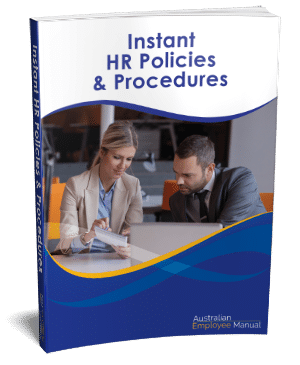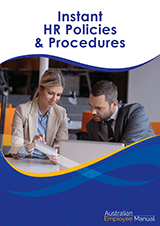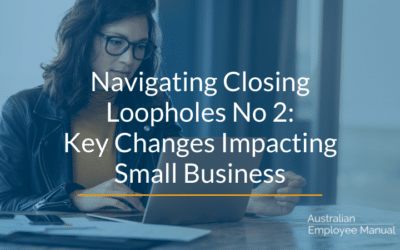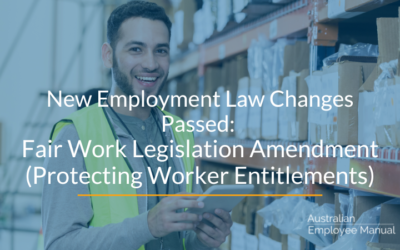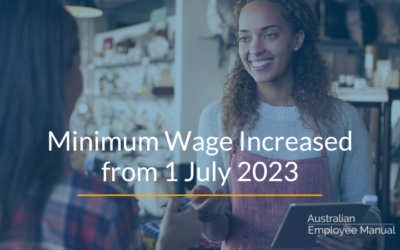What happens when an employee needs to self-isolate under COVID requirements, but have run out of sick leave or have no sick leave available? What options for leave or financial support are available?
COVID has caught most states, the Federal Government and Fair Work by surprise. The workplace relations system has not factored in full-scale pandemics into their industrial awards and agreements, and everyone is playing catch-up.
There is now a blend of paid and unpaid pandemic leave provisions covering many workplaces, and many employees and businesses simply fall through the cracks.
The state of play as of 8 September 2020 is as follows:
Awards Under Fair Work
Some awards provide for paid pandemic leave. The Aged Care Award, the Nurses Award and the Health Services Award provide for paid pandemic leave for eligible employees through a new Schedule Y.
Eligible employees are employees covered by those awards AND who work in the aged care industry.
Paid pandemic leave applies to full-time, part-time and eligible casual employees (which means the casual employee must have been employed on a regular and systematic basis).
These employees are entitled to up to two weeks of paid pandemic leave if they can’t work (including working from home) because:
- their employer, or government or medical authorities, require them to self-isolate or quarantine
- they have to self-isolate or quarantine while waiting for a coronavirus test result
- they are showing symptoms of coronavirus and have been advised by a medical practitioner to self-isolate or quarantine
- they have come into contact with a person suspected of having contracted coronavirus, or
- of government or medical authority measures taken in response to coronavirus (including, for example, closing a facility).
Leave is not accrued and is available in full each time they meet the criteria.
Paid Pandemic leave is not payable if the person is entitled to take paid sick or carer’s leave instead (i.e. if they are ill or if they need to care for someone who is ill).
The leave needs to start before (but can finish after) 29 October 2020 (but expect this date to be extended).
In April, a number of awards were varied to allow for unpaid pandemic leave, and annual leave flexibility clauses (with varying end dates). These provisions are still in place and cover the majority of people covered by industrial awards.
Industrial agreements are still generally silent on pandemic leave, as are individual contracts with award free employees.
Federal Government – Pandemic Leave Disaster Payment
The Federal Government has introduced a Pandemic Leave Disaster Payment for people who can’t earn an income because they need to self-isolate or quarantine at home, or care for someone with COVID-19 and they don’t have sick leave available.
This is a lump-sum payment of $1500 paid by the government for the fortnight they are required to self-isolate or quarantine at home or are caring for someone with COVID-19.
The availability dates vary, as do the eligibility requirements, and does not apply to all states.
The payment is available to eligible employees who live in:
- NSW and who work in Victoria (from 28 August 2020)
- SA and work in Victoria (from 28 August 2020)
- Tasmania (from 22 August 2020)
- Victoria (from 5 August 2020)
- Western Australia (from 11 September 2020)
- NSW (from 17 September 2020)
Victorian Government – Coronavirus Worker Payments
Victorian employees can apply for a $450 Coronavirus Test Isolation Payment that provides financial support while they self-isolate to wait for the results of a COVID-19 test.
To be eligible for the $450 Coronavirus (COVID-19) Test Isolation Payment, you must:
- be 17 years and over
- have been tested for coronavirus (COVID-19) or be the guardian or carer of someone who has been tested
- live in Victoria
- be likely to have worked during the self-isolation period and unable to work due to:
- a requirement to self-isolate after the test
- a requirement to stay in isolation to care for someone who is required to self-isolate
- not receive income or salary during self-isolation
- have exhausted sick and/or carers leave entitlements, including special pandemic leave, or have no entitlement to such leave
- not be receiving Australian Government income support such as the JobSeeker payment, or be an employee subject to the JobKeeper payment
In Summary
This is a continuously developing situation and employers need a high level of vigilance to stay across changing conditions.
Each business needs to be aware of the relevant awards that cover their employees and to be aware of the relevant paid/unpaid pandemic leave provisions that exist. Regularly check the Fair Work website to remain updated on relevant decisions and changes to awards.
We also recommend that all employers stay across media announcements or regularly check the Centrelink website for an extension of the Pandemic Leave Disaster Payments to other states or changes to the provisions.
